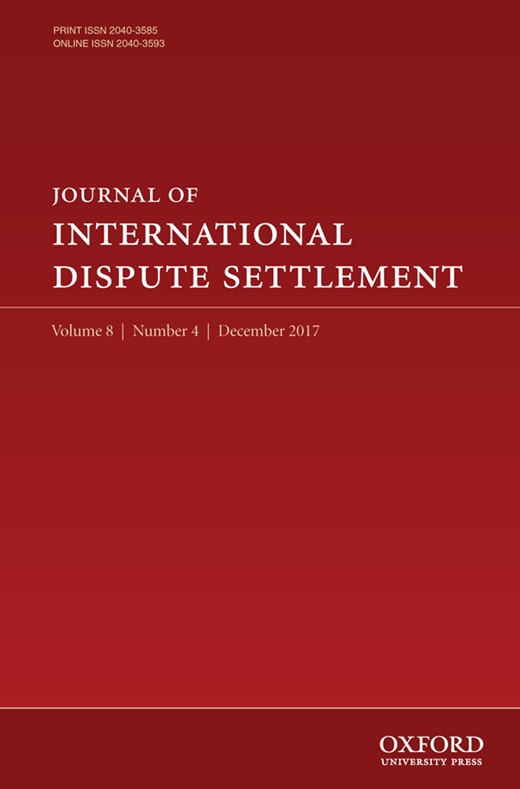-
Views
-
Cite
Cite
Javier García Olmedo, Claims by Dual Nationals under Investment Treaties: Are Investors Entitled to Sue Their Own States?, Journal of International Dispute Settlement, Volume 8, Issue 4, December 2017, Pages 695–727, https://doi.org/10.1093/jnlids/idx017
Close - Share Icon Share
Abstract
Nationality plays a vital role in the field of investor-state arbitration. Most investment treaties require that, to benefit from treaty protection, an investor must be a national of the home state. Yet, the determination of nationality for investment treaty purposes can be particularly complex, raising a number of unresolved questions of considerable practical importance. One of these questions is whether investors who hold the nationality of both state parties to an investment treaty (i.e. dual nationals) are entitled to sue their own home state where the treaty is silent on the issue of dual nationality. This contribution contends that, when faced with a claim of this nature, arbitral tribunals should apply the well-established customary rule of dominant and effective nationality, and uphold jurisdiction only if the investor maintains a stronger connection with its home state.



